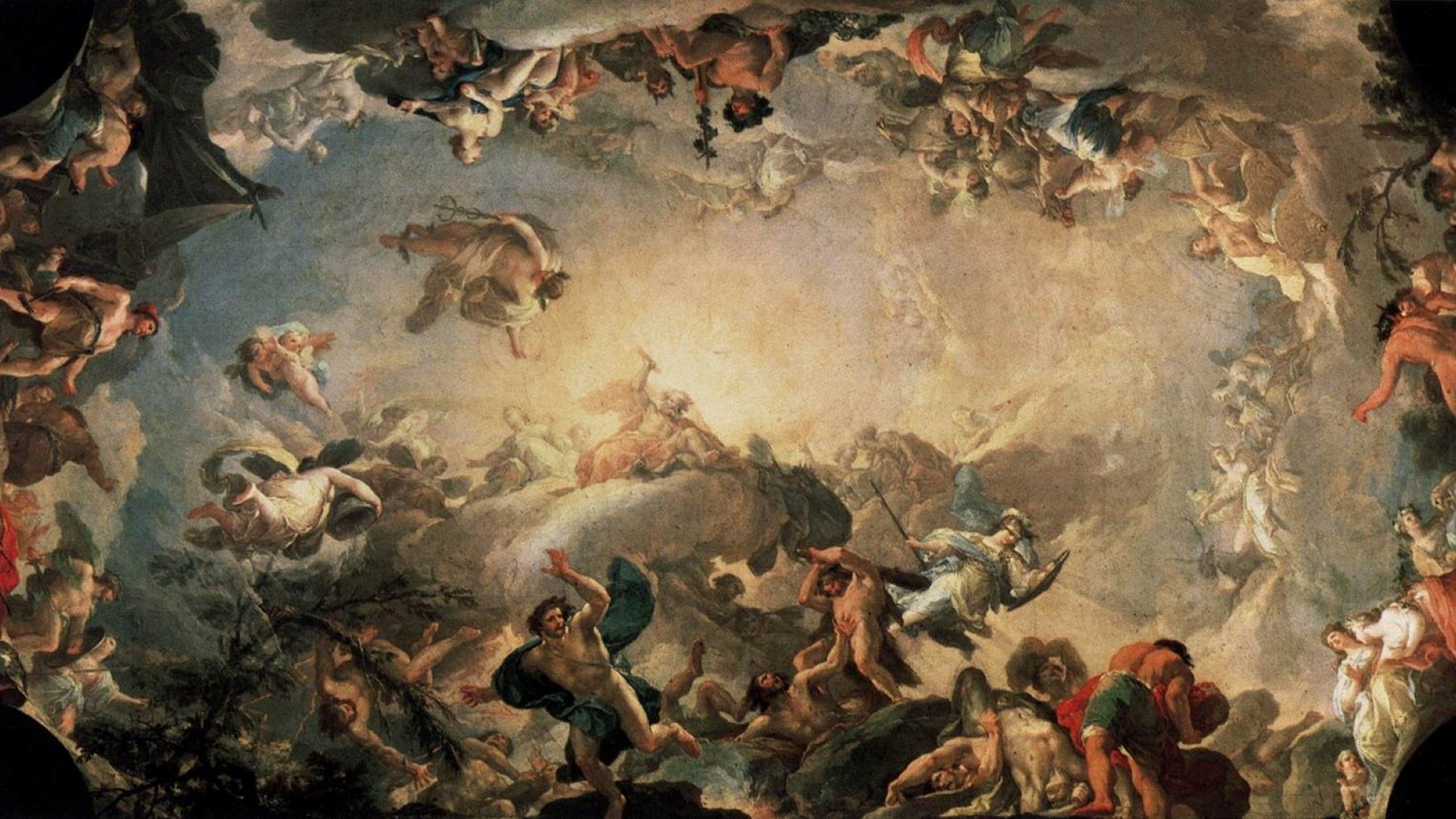
Acrisius
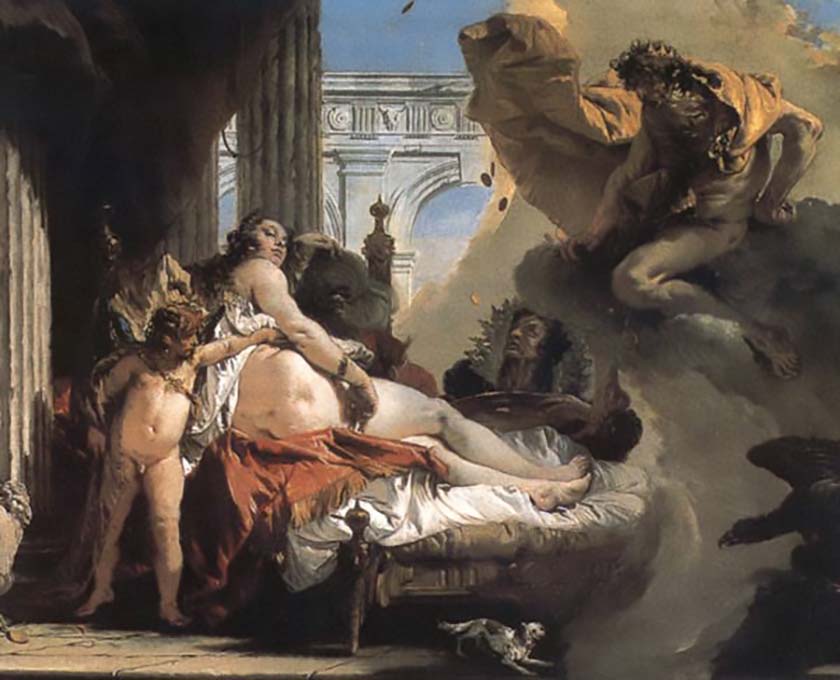
In Greek mythology, Acrisius (Ancient Greek: Ἀκρίσιος) was a legendary king of Argos; Acrisius was a son of Abas, but more famously he was also grandfather of Perseus.
THE BIRTH OF ACRISIUS
Acrisius was born in Argos, and was the son of King Abas of Argos and his wife Aglaea (also known as Ocaleia). This parentage would famously make Acrisius the great-grandson of Danaus, the king who had emigrated from Libya to Argos.
Acrisius would also have a twin brother, Proetus.
ACRISIUS' DISPUTE WITH PROETUS
Many sources tell of the dispute between Acrisius and Proetus beginning in the womb, although the great quarrel between the two began many years later.
Upon the death of Abas it was said by some that Proetus became King of Argos, and indeed ruled the kingdom for a number of years, possibly as many as 17 years. Acrisius though, unhappy at his lot, lead an uprising against his brother, and Proetus was overthrown, and sent into exile.
Alternatively, it was Acrisius who succeeded to the throne of Argos, and Acrisius exiled Proetus to prevent his brother becoming a threat to the throne.
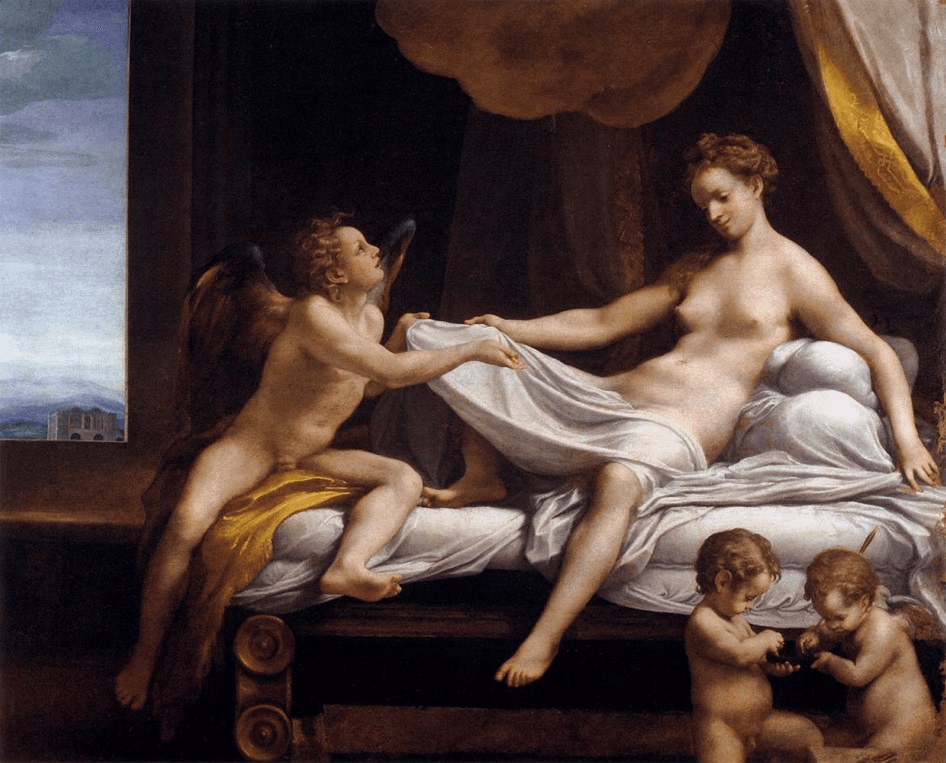
ACRISIUS AND PROETUS AT WAR
In either case Proetus would end up in Lycia, where he married Stheneboea, the daughter of King Iobates. Iobates would subsequently help his son-in-law to regain, or obtain, what was considered his birth right.
War erupted between the forces of Argos and the forces of Lycia, but as the war dragged on, neither Acrisius nor Proetus could gain any ascendancy.
To bring the war to an end it was eventually decided that the kingdom of Argos would be divided between the two; thus, Acrisius would rule western Argolis from the city of Argos, whilst Proetus would be king of the other half, ruling from Tiryns.
ACRISIUS FATHER OF DANAE
Acrisius would marry Eurydice, the daughter of King Lacedaemon, and the relationship would bring forth one beautiful daughter, Danae.
As the years passed Acrisius became increasingly concerned that he did not have a male heir to pass on the throne of Argos to; and in time Acrisius would consult the Oracle of Delphi about the possibility of an heir.
The news given to him by the Pythia though was not what he had hoped for, for the Oracle provided a warning to the king of Argos, a caution that the son of Danae would end up killing him.
At the time Danae had no son, and now more concerned about his own demise, rather than the lack of heir, Acrisius decides to prevent Danae from bearing a child. To this end, Acrisius constructs a bronze tower.

ACRISIUS GRANDFATHER OF PERSEUS
The bronze tower has a single door at its base, which is guarded day and night, and at the top is a room fit for a princess, and one which Danae effectively finds herself a prisoner in.
No men are allowed to enter the tower, and the bronze nature of the tower also ensures that its walls cannot be climbed.
Now Acrisius believes that he has ensured that his daughter cannot get pregnant but all it ends up doing is ensuring that Danae does indeed fall pregnant.
For on Mount Olympus observes the construction of the strange bronze tower, and he descends to Argos to investigate.
Zeus is already aware of the beauty of Danae, and the god comes to Danae in the form of a golden shower that falls through the roof of the tower, and as a result the daughter of Acrisius falls pregnant with the son of Zeus, a son who would be named Perseus.
ACRISIUS ABANDONS HIS DAUGHTER AND GRANDSON
When Danae eventually gives birth to a son, Acrisius is in a quandary, for he cannot kill the boy, for obviously his grandson is the son of a god, for only a god could have impregnated Danae, nor could he risk keeping Perseus around for it would result in his own death.
Acrisius therefore places Danae and Perseus into a chest, and sets it adrift in the sea. Acrisius believes that if the pair perish at sea it must have been the will of the gods, and if they survive then they will have been washed up far away from Argos, and Perseus will be unable to do Acrisius any harm.
With the guiding hand of Zeus and Poseidon, the chest eventually washes up on the island of Seriphos, and there Perseus grows up.
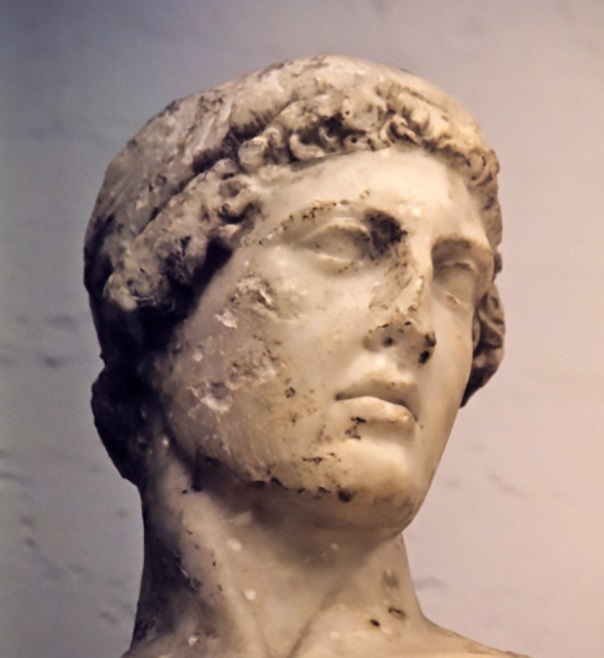
THE DEATH OF ACRISIUS
Years pass by, and Perseus ends up having his own adventures, but eventually Perseus decides that he and Danae should return to Argos to reconcile with Acrisius.
When Perseus arrives in Argos though, he finds that Acrisius has gone to Larissa in Thessaly; whether he had fled there when he heard of his grandson’s return, or whether it was simply a visit to another kingdom, depends on the source being quoted.
Perseus though would follow Acrisius to Larissa, and arrived in time to take part in the games that were taking place there. Unfortunately, Perseus would throw a discus which accidentally hit Acrisius, killing him, and so the prophecy of the Pythia had come true.
Alternatively, some tell of Acrisius actually dying upon Seriphos. For Acrisius had gone to the kingdom of Polydectes when he learned that his grandson was still alive, and potentially, Acrisius had now decided to kill Perseus. In this version of the myth, Polydectes mediates between Acrisius and Perseus, and Perseus agrees not to kill his grandfather, but then Polydectes dies unexpectedly. It was then during the funeral games for Polydectes that Acrisius was killed by Perseus.
Acrisius would not be succeeded to the throne of Argos by his grandson Perseus though, for Perseus baulked at the prospect of inheriting a kingdom through his killing of his grandfather. Thus Perseus came to an agreement with Megapenthes, the nephew of Acrisius by Proetus, and Megapenthes became king of Argos, whilst Perseus became king of Tiryns, the former kingdom of Megapenthes.
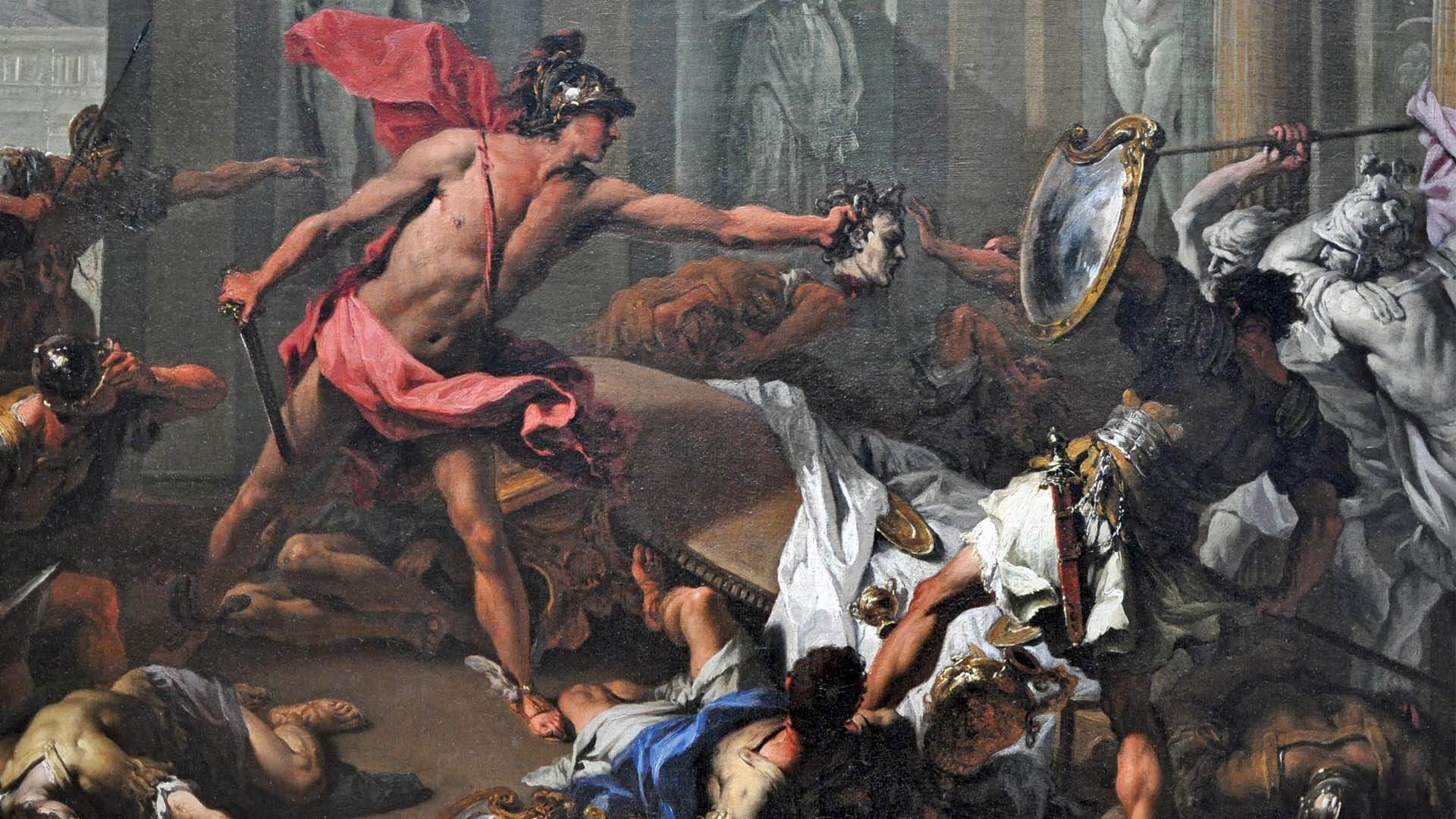
Sources
Gaius Julius Hyginus, Fabulae from The Myths of Hyginus translated and edited by Mary Grant. University of Kansas Publications in Humanistic Studies. Online version at the Topos Text Project.
Pausanias, Description of Greece with an English Translation by W.H.S. Jones, Litt.D., and H.A. Ormerod, M.A., in 4 Volumes. Cambridge, MA, Harvard University Press; London, William Heinemann Ltd. 1918.
Pausanias, Graeciae Descriptio. 3 vols. Leipzig, Teubner. 1903.
Pseudo-Apollodorus, The Library with an English Translation by Sir James George Frazer, F.B.A., F.R.S. in 2 Volumes, Cambridge, MA, Harvard University Press; London, William Heinemann Ltd. 1921.
Strabo, The Geography of Strabo. Edition by H.L. Jones. Cambridge, Mass.: Harvard University Press; London: William Heinemann, Ltd. 1924.
Strabo, Geographica edited by A. Meineke. Leipzig: Teubner. 1877.
"Wikipedia"
"Greek Legends and Myths"
Our Mobile Application
Check out Our Mobile Application "Ancient Greece Reloaded"


